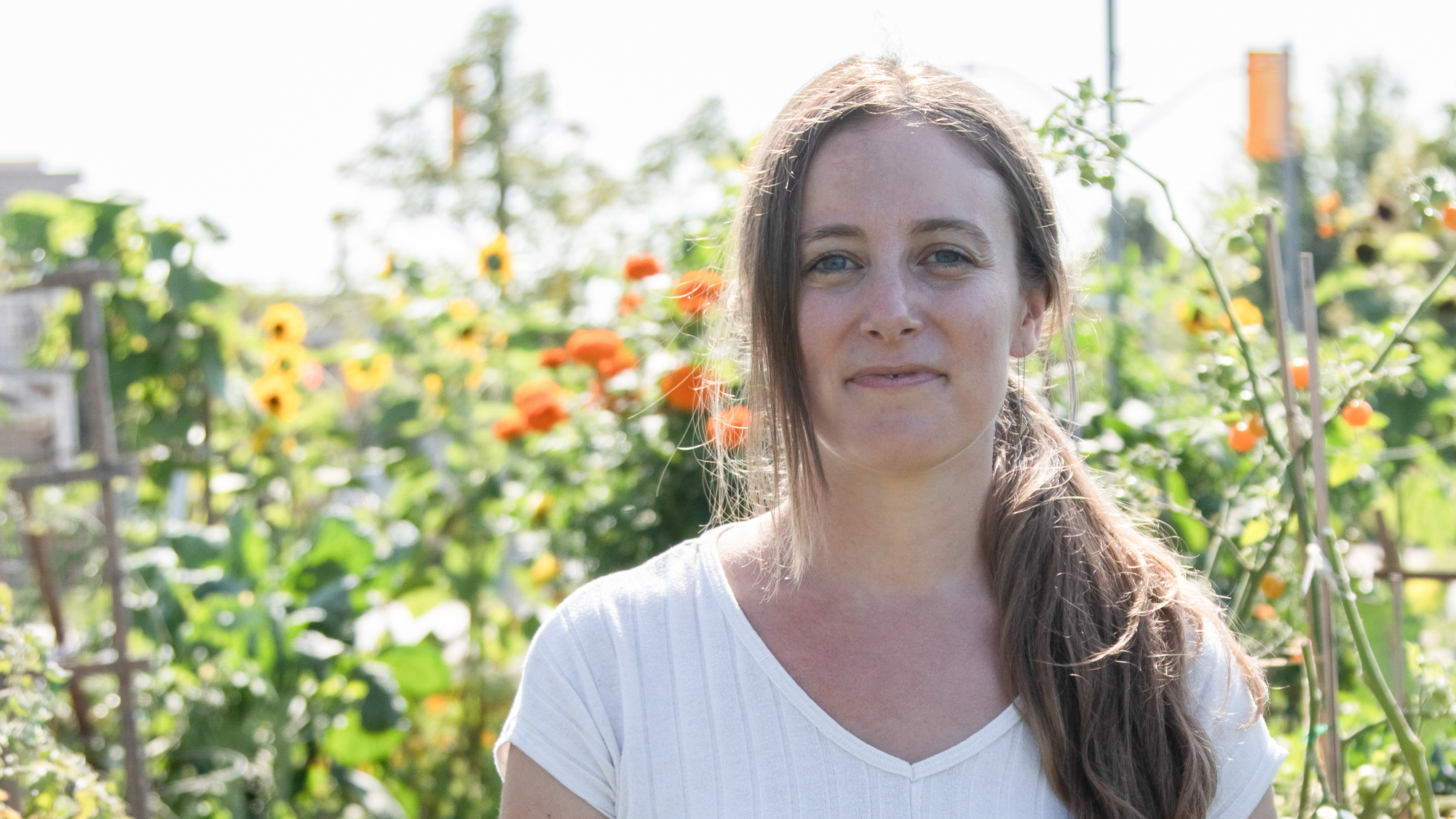
How United Way-funded community gardens are helping neighbourhoods become more food secure
When we think of community gardens, we may not immediately think of food security, but these spaces are an essential part of United Way Greater Toronto’s approach to strengthening local food systems.
“Community gardens and urban farms not only help people build their capacity to grow, harvest and distribute food locally, but also help residents develop critical skills and connect with one another,” says Juneeja, Senior Manager of Community Initiatives at United Way Greater Toronto. “Like so many of the programs we support, they move beyond immediate hunger relief towards engaging and enabling communities and residents to foster long-term household food security.”
This is exactly the work being done at Ecosource, a United Way-funded organization managing ten community gardens in Mississauga. The gardens are used by more than 500 community gardeners, about half of whom live on a low income. Together with volunteers, they grow more than 10,000 pounds of food annually. Not only does this mean gardeners and their families have access to fresh, affordable and culturally appropriate fruit and vegetables, but the organization donates produce to local food banks too.
“Residents can come together to grow the food that they want and need, rather than being reliant on what’s on the shelves in the food bank or what’s being served by a meal program,” says Britt, Ecosource’s Executive Director. “They have that agency over what’s grown and also how it’s used and shared, which we think is really, really important to people’s food security.”
Gardening has many other benefits, too. It helps residents improve their mental health and wellness, get more exercise, and connect with their neighbours, creating a better sense of belonging. It also offers a space to exchange knowledge about different growing traditions and preserving food, something Ecosource is building on through its partnerships with other United Way-supported organizations.
The Indigenous Network and The Dixie Bloor Neighbourhood Centre are both working with Ecosource on redeveloping one of the gardens and engaging residents in the process. So far, they’ve created spaces for different community groups, including for Indigenous youth to grow food following traditional practices. They’re also installing accessible beds and figuring out how to make walkways more accessible so everyone can enjoy the garden.
“It’s a really beautiful story of how gardens can be designed by communities to reflect what those communities want to see in those spaces and how they’re going to actually use them,” says Britt. “Without United Way’s funding, we wouldn’t have the resources to do this kind of in-depth partnership-building work.”